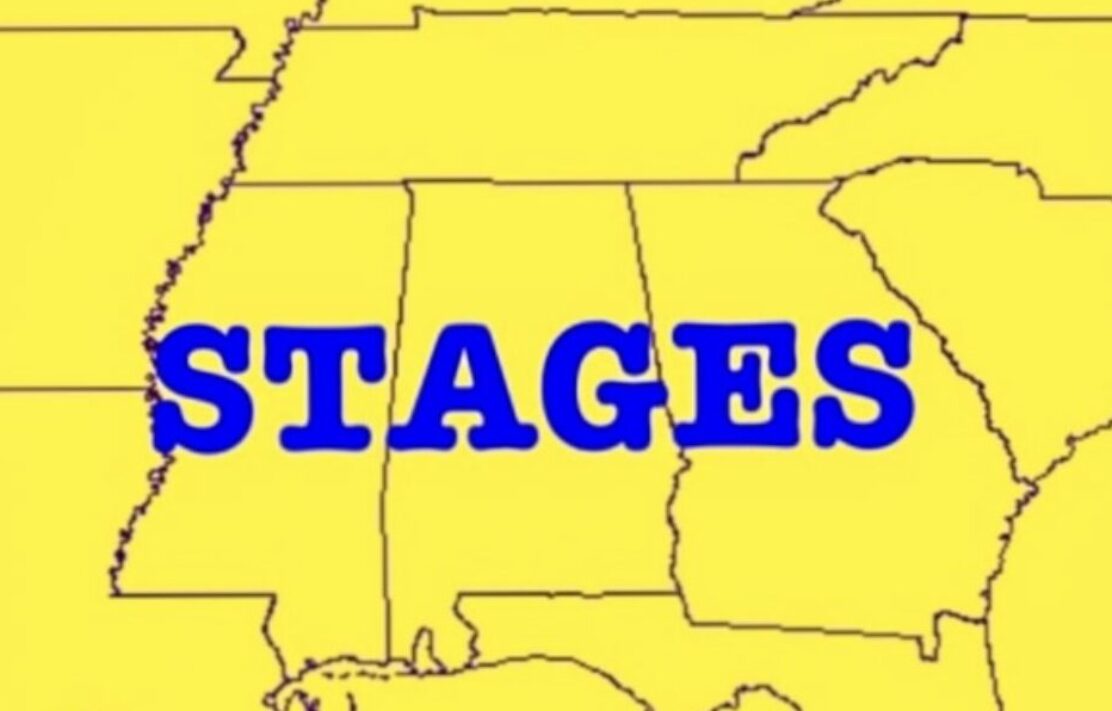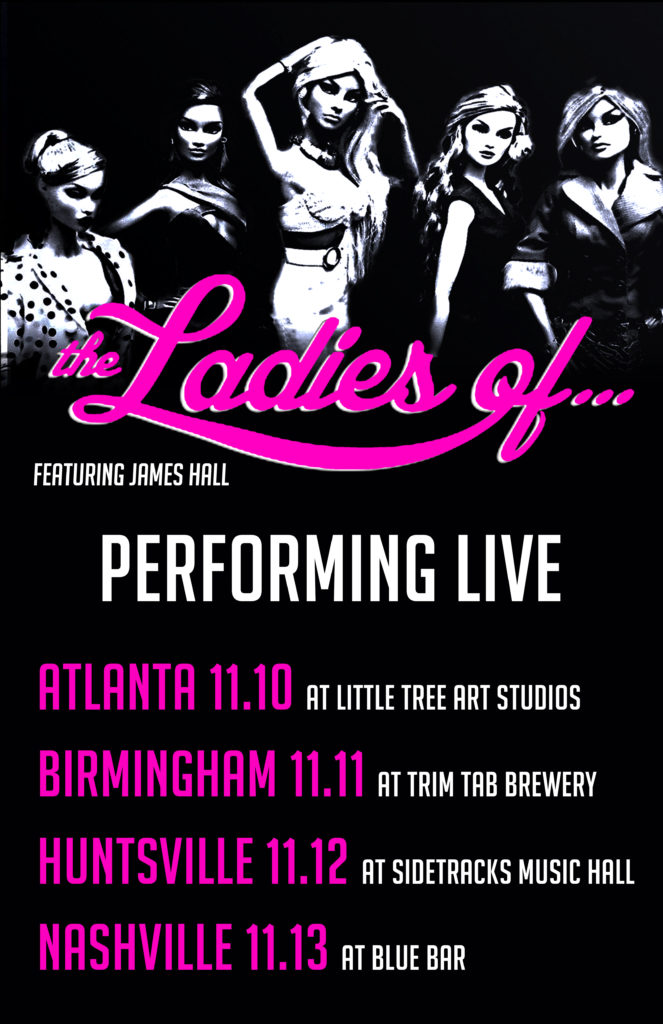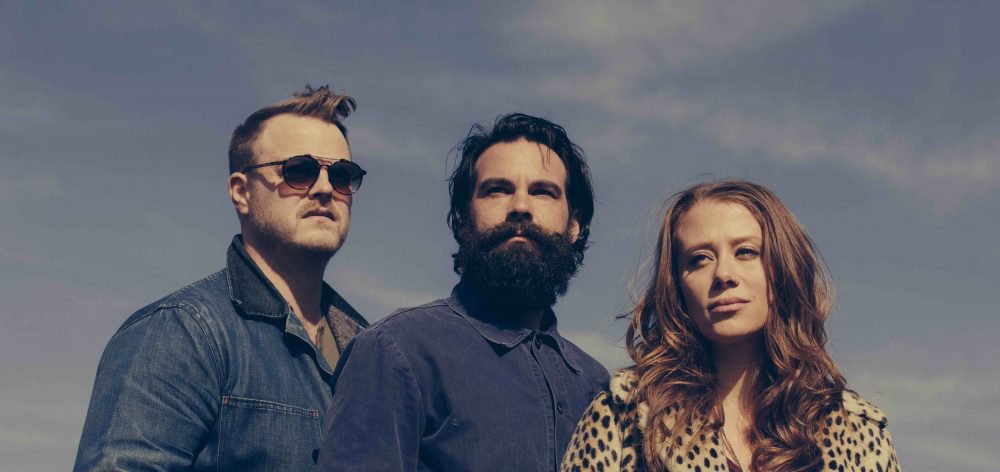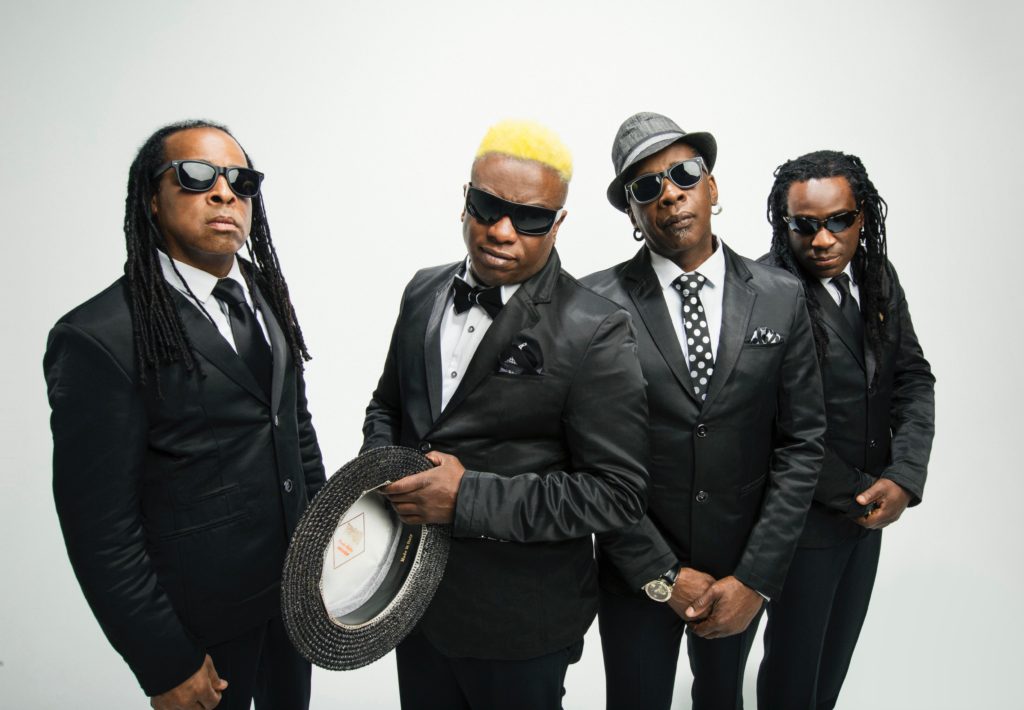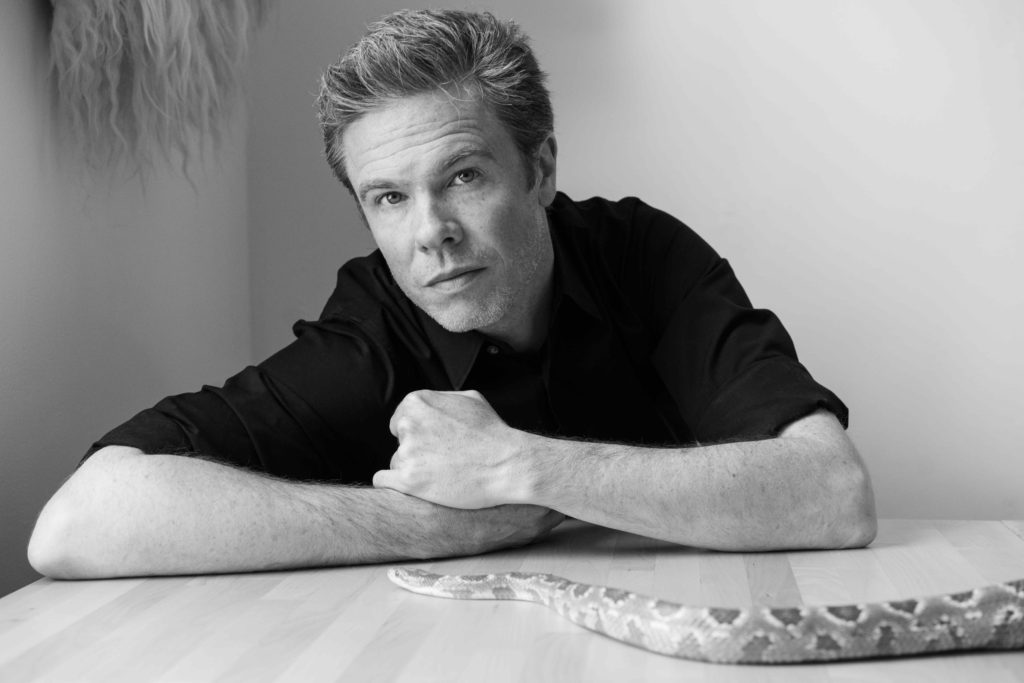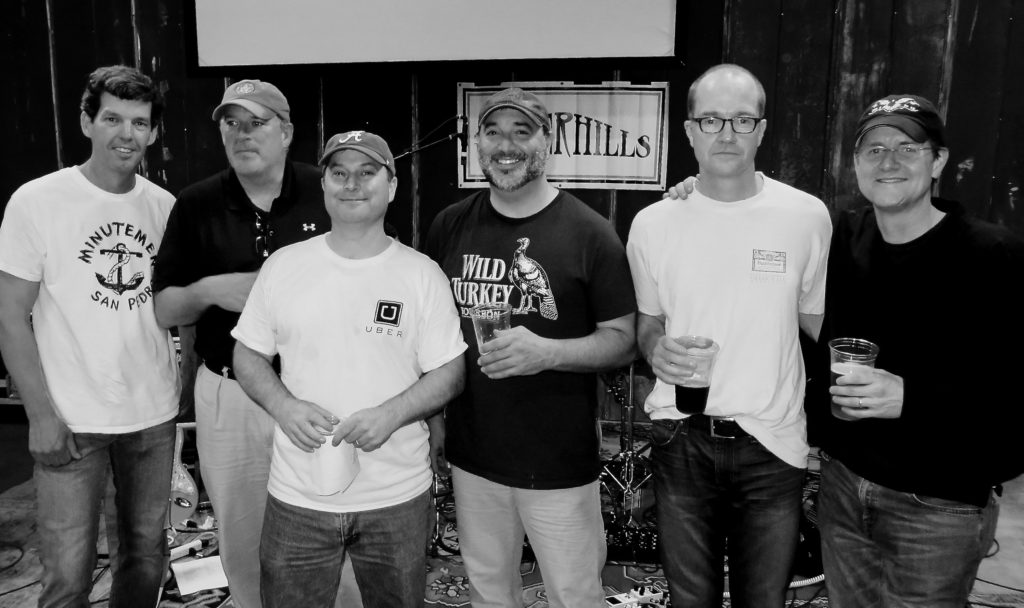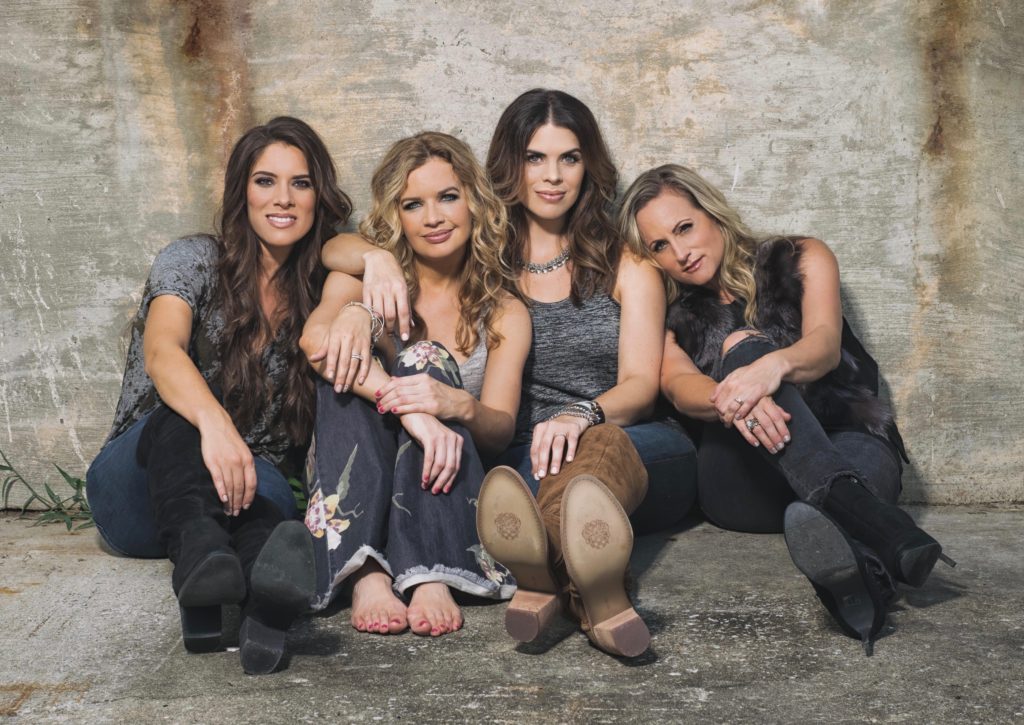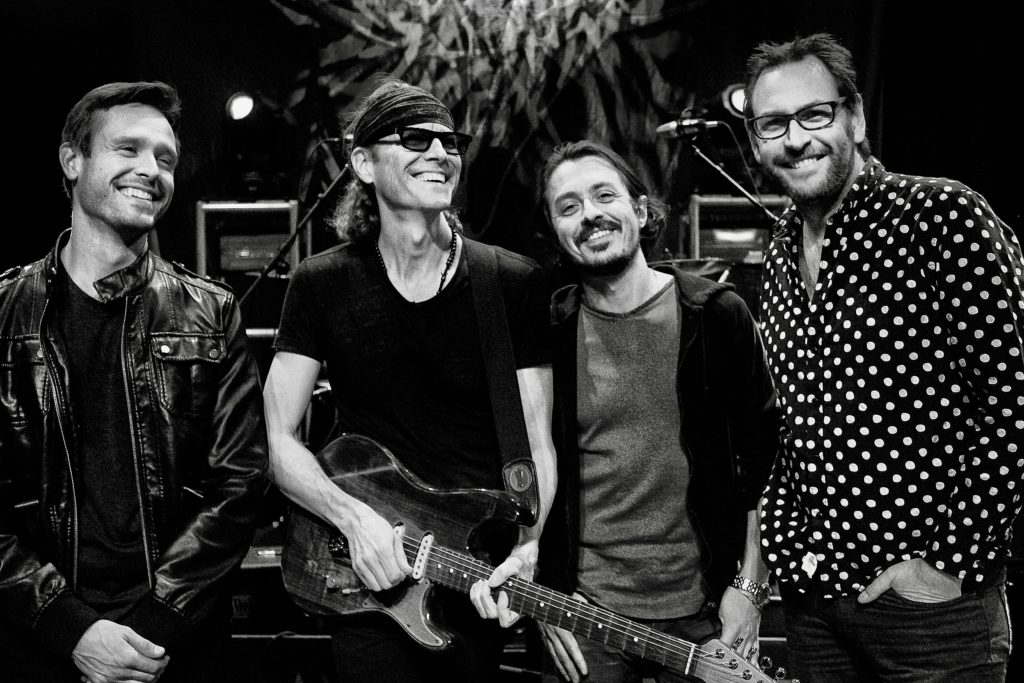By Blake Ells
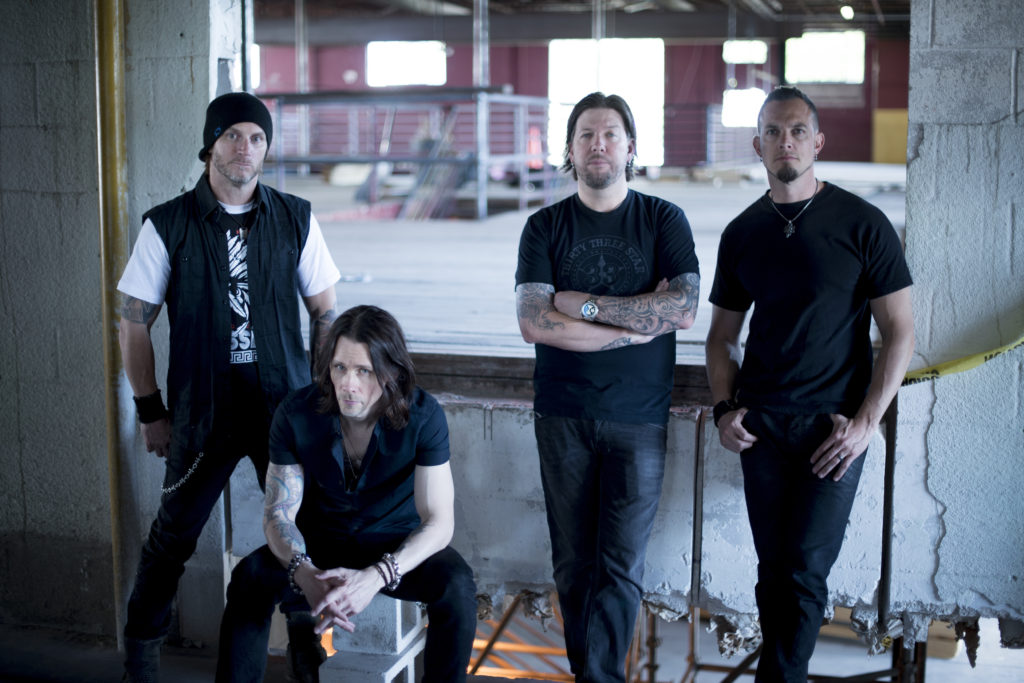
Photo Credit: Carlos Amoedo
Alter Bridge now has six studio albums under its belt over the past 13 years. The band formed as Creed waned and shortly after frontman Myles Kennedy declined an offer join Velvet Revolver, creating a hard rock supergroup that’s tremendous run has no end in sight.
Their guitarist is Mark Tremonti, one of the most legendary hard rock guitarists in a post-Slash and Van Halen world. Ahead of the band’s Birmingham show at Iron City, Tremonti shared more about how he first got into guitar, who influenced him and how he has evolved creatively. He also discussed what’s in store for 2018.
Birmingham Stages: You grew up in Detroit, but you kept moving farther and farther South. What kept leading you this direction?
Mark Tremonti: My parents moved down when I was a sophomore in high school. I thought I’d always move back north, but your blood thins out a little bit and you get a taste of the sun and you take vacations north and say, “I could never move back here.” That’s where I’m at in my life.
Birmingham Stages: Who do you root for when Clemson plays Florida State?
MT: Whoever’s got the better chance of winning a championship.
Birmingham Stages: So you’re a Clemson fan this year, I guess?
MT: [Laughs] Oh, absolutely. This is about the worst year I can ever imagine Florida State going through.
Birmingham Stages: Do you still have any connections to Detroit or is Florida home now?
MT: I’ll always consider Detroit my home—it’s a big part of who I am. Florida is my home now, but that’s my roots for sure.
Birmingham Stages: What or who is the best band or artist from Detroit?
MT: I’ll say Bob Seger. He’s a big Detroit guy.
Birmingham Stages: How important was Birmingham and [radio station] The X to your early career success?
MT: Very. Back in those days, we spent most of our time chasing down radio and we did acoustic performances and they played the hell out of the song on the radio and got all of those people in those seats at the concerts.
Birmingham Stages: At this point, Alter Bridge has more studio albums than Creed ever had. Has this been a more rewarding project for you at this point?
MT: Artistically, I feel like it’s more rewarding because it’s what I’m currently doing and I feel like if you’re not getting better, you’re getting worse. I’ve been working hard to improve over the years. I’m very proud of what we did back in the Creed days and I wouldn’t be here now if we didn’t do that, but I think of that as a band I was in when I was a young kid. I’ve learned a lot since those days. I’m more proud—artistically now—of the Alter Bridge stuff.
Birmingham Stages: You’ve been pretty prolific—you’ve churned out a new studio record around every two years and there’s a new live record this year. Can you continue at that pace?
MT: I am going in the studio in January for my next solo record. With Alter Bridge, we’re coming out with a new DVD next year and I’ll be releasing my solo record; Myles [Kennedy, lead vocalist] will be releasing his solo record; there might even be a Slash and Myles record…who knows? There’s always a heck of a lot of material for folks to grab onto.
Birmingham Stages: But after you step away from each other for a year, you’ll come back together as Alter Bridge, right?
MT: Oh yeah, I think it’s very healthy for us. We’re so busy with Alter Bridge that if we just kept going, we might get burnt out on it. I think when we take that break and come back to it, it’s fresh all over again. We’re very excited to get back into it.
Birmingham Stages: Is that a lesson that you learned from the early days—to take some time away from one another and gather yourself?
MT: Yeah, in the early days, it felt like crunch time all the time. There wasn’t a lot of down time. Back then, we didn’t know. We’d hear that it was going to be our “sophomore slump” if we didn’t come out with a great record—the single is really important—your career is going to end. There were always these end of your career type of scenarios if you didn’t perform well enough on something and I think it was about five years ago that I reached a point in my career where I thought, “I’m glad to not have those sorts of pressures anymore.” At this point, we’ve done it long enough where if we just keep working hard we can do it as long as we want to do it.
Birmingham Stages: Do younger kids still get into hard rock and roll? Or are your fans the fans guys in their 30s and 40s that have loved you since they were young?
MT: Depends on where you’re at. We go to a lot of European countries and there’s tons of kids there. We get all ages; when we first started, it was a lot of dudes in baseball caps, but now it’s a good mixture of men, women, young and old…every culture…coming out to the shows. And that’s great.
Birmingham Stages: Who was the guitarist that inspired you and made you want to learn how to play?
MT: A lot of people, but at a young age, I’d hear a song come on the radio and the guitar breakdown would happen—some songs that stick out to me—or certain bands—-like Boston would have a lot of songs that would breakdown to a guitar and I loved that. J Geils Band—I remember when “Love Stinks” hit the radio and the guitar broke down at the end and I thought it was the coolest thing in the world and I went out and bought the record. A lot of bands did that back then and I was obsessed with the sound of the guitar.
And I saw the movie Back to the Future, and when Michael J. Fox got to play with that band, I thought it was the fucking coolest thing in the world. Crossroads with Steve Vai blew my mind—when they were fighting for his soul in the movie. Years later I learned how to play that solo and loved it.
Of course my older brothers listened to stuff like Ted Nugent and KISS. My other brother was into Slayer and Metallica. That’s when I became obsessed with music was when I discovered Metallica and Slayer—some of the heavier stuff.
Birmingham Stages: Were you self-taught?
MT: Yeah. I’m self taught. I bought my first guitar for $10 from one of my buddies and I found an amp at a pawn shop for $40. I learned as much as I could by just fumbling around on the guitar. I don’t know how much longer after that that my parents got me a guitar lesson at a guitar shop, but the guy wanted to teach me the Mel Bay book 101 where you learn “Silent Night” or “Jingle Bells” or whatever the hell he was trying to teach me and I wasn’t interested so I never went back. I had more fun learning on my own.
Birmingham Stages: Did you form your first band shortly thereafter?
MT: Yeah, I had a junior high band—the first band was called Diversion, and I think I may have been in that band in 7th grade. Our drummer was great; our singer had a punk vibe to him. There was me and my buddy Kevin playing guitar.
There was another band in town named Distortion, and they were kind of the hot band in town at the time. We decided to take both bands and split them up to create a supergroup, getting rid of the guys that weren’t really into it. That formed a band called Wit’s End. We recorded a five-song demo in Detroit.
Alter Bridge: The Last Hero Tour comes to Iron City on Wednesday, November 29. Doors open at 6:30 p.m. and the show begins at 7:30 p.m. Sons of Texas and All That Remains open. A few tickets remain and they’re $31.50 in advance and $35 at the door.
